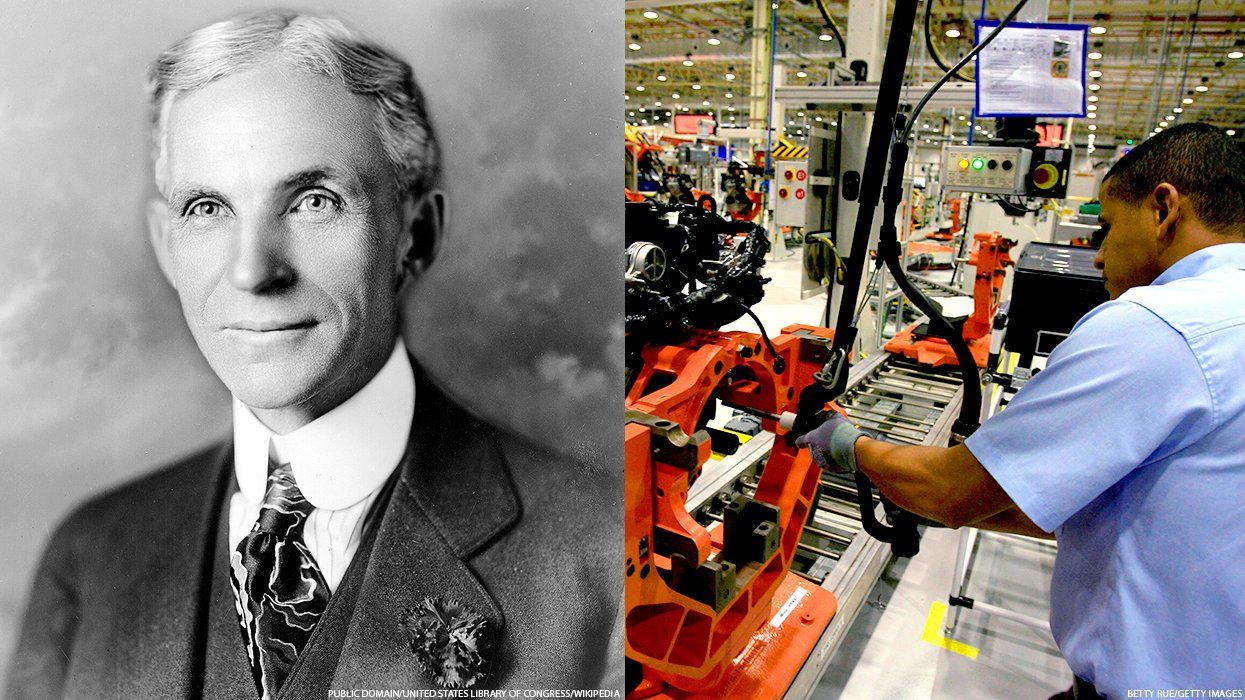Ford Motor Company became one of the first companies in the United States to implement a five-day, 40-hour week for its automotive factory workers on May 1, 1926. Today, despite evidence suggesting otherwise, the company's current CEO believes a four-day, 32-hour work week just isn't "sustainable."
The contracts for over 150,000 auto workers expires on Sept. 14. The United Auto Workers union is poised to go on strike if they cannot reach a deal with Detroit automakers before then. Assembly line workers are difficult to replace, meaning a strike could deal a large blow to the automotive industry.
The UAW is asking for a wage increase of 46 percent over the next four to five years in compensation for years of stagnant wages amid record company profits. Another request of the union is the implementation of a four-day work week.
Auto workers ready to strike

In an interview regarding the impending UAW strikes, current Ford CEO Jim Farley told ABC Live that "we can't have a sustainable industry working four days a week."
The union disagrees, and studies back them up — in February 2023, the world’s largest trial of the four-day workweek concluded, with 92 percent of the companies that participated finding such success that they said they would continue to implement four-day work weeks even after the experiment ended.
In the pilot project, led by advocacy group 4 Day Week Global in collaboration with research groups, 3,000 employees worked shortened weeks at their original salary. By the end of the experiment, participants felt they benefited so greatly that 15 percent said “no amount of money” would convince them to go back to working five days a week.
Not only did 71 percent of employees experience less burnout, but company profits were not impacted — in fact, the study found that profits slightly increased by 1.4 percent.
While the scope of the study was limited and the model could not apply to every company, the results of the four-day work week trial show incredible promise.
And while the switch may be unheard of in contemporary times, Henry Ford's decision to implement a five-day week was also unheard of at the time. Before the switch in 1926, Ford employees worked six days per week at eight hours per day. In shifting to five days, Ford recognized not only the benefits had on his employees, but how employment could be used to grow the middle class — his customers.
Businesses across the nation found success in Ford's model, and soon began switching themselves. In 1938, President Franklin D. Roosevelt signed into law the Fair Labor Standards Act as part of the New Deal, which solidified the 44-hour work week. That was adjusted to 40 two years later, and is still in effect today.
But even 12 years before Ford's revolutionary switch, he made an equally radical decision to double his employees' salaries — something the UAW is asking for today. Ford increased the pay for male factory workers from $2.34 to $5.00 per hour in 1914; the UAW is asking for a 46 percent increase over the next five years.
While Farley says shortening the work week isn't "sustainable," his company's namesake did so nearly a century ago. Ford has also only offered UAW workers a 20 percent pay increase.
Farley received nearly $21 million in 2022, compared to the median total compensation for Ford employees of $75,000, according to ABC — a ratio of 281 to 1.
As Ford told Time in 1926: “It is high time to rid ourselves of the notion that leisure for workmen is either ‘lost time’ or a class privilege.”
- Why Is Minnesota So Blue? ›
- Donald Trump Isn't the First President to Face Arrest ›
- Trump Mugshot Makes History... And Memes ›
- UAW Launches Historic Strike Against All Big 3 Automakers ›
- Friday's Top Stories: Historic UAW Strike, Hunter Biden Indictment, 10k Dead in Libya ›
- Donald Trump Receives Scathing Criticism From UAW President ›
- President Joe Biden Joins UAW Workers on Picket Line, Making History ›
- 8,700 Ford Workers in Kentucky Join UAW Strike ›
- Kaiser Permanente and Union Reach Tentative Deal ›
- UAW Reaches Tentative Deals With All Big Three Automakers ›


















































